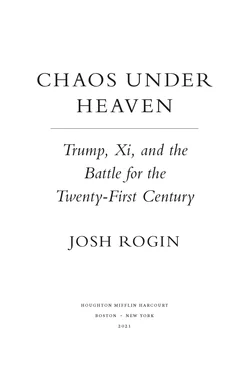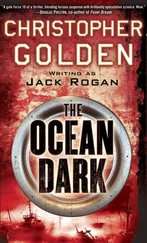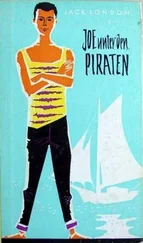“The question is do we want our China center funded by the perception management and influence operations wing of the Chinese Communist Party?” Eisenman wrote.
That’s when things went from bad to worse. Dean Angela Evans intervened to accuse Eisenman of making “unsubstantiated claims” (an accusation she declined to substantiate) using “an unprofessional and inflammatory tone.” Professor Jeremi Suri came to Eisenman’s defense and demanded Evans apologize to Eisenman for attacking him or resign her post as dean. Admiral Bobby Ray Inman, former director of the National Security Agency, concurred with Eisenman’s assessment of CUSEF.
While Fenves’s investigation was ongoing, Firestein held his first China center event at the LBJ School, cohosted by CUSEF and featuring a former Chinese vice foreign minister. A second event in New York included several People’s Liberation Army generals, while a third at LBJ featured representatives from the China Institutes of Contemporary International Relations, a think tank that is affiliated with the Ministry of State Security, China’s CIA. These events drew the attention of the local FBI office, whose agents attended them and interviewed attendees afterward.
“Every single event that the China center and Firestein would hold parroted the Chinese line,” one UT tenured professor told me. “The worst was when he brought over people from [the China Institutes of Contemporary International Relations]. He didn’t disclose at all who they really were. We had to warn our students, ‘You need to be careful.’”
In mid-December, Cruz wrote a letter to Fenves demanding he reject Firestein’s plan to fund the school’s China center using Tung Chee-hwa’s money. Cruz’s office gave me the letter and I called Fenves and gave him a two-day deadline to respond or comment. Just before the deadline, Fenves’s office told me he had decided that UT would not take the CUSEF money and Firestein’s plan was squashed.
Evans accused Eisenman of orchestrating the campaign to kill the funding. Eisenman played a role, to be sure, but crediting him fully would ignore the important roles of Inboden, Inman, Mattis, Cornyn, and Cruz, not to mention Fenves, who performed the due diligence Evans never considered and Firestein fought bitterly against. In what many in the school saw as retaliation, Evans declined to provide any further research funding for Eisenman, multiple professors said. Emails show she also decided not to continue funding for his wife’s post-doc at the University’s history department. Evans denied retaliating and said Eisenman and his wife continued to receive funding support from the university. His wife ended up securing funds from an alternate source.
Eisenman left the school and was granted a tenured professorship at Notre Dame, where his wife is now an assistant dean. Back in Texas, Firestein was not finished. He simply took his plan to use CCP-linked funding to promote the interests of the CCP to a brand-new institution: the George H. W. Bush Foundation for US-China Relations, where he became its executive director a few months later. There he linked up with a like-minded spirit, Neil Bush, one of the CCP’s best friends in a royal American family.
Things with Presidents’ Names on Them
As the Bingo Club continued mapping out Chinese influence efforts in the United States, patterns emerged. One of them was that CCP-linked influence organi zations like nothing more than linking up with a domestic institution whose name brings instant credibility and validation. In the United States, what could be better for that than the organizations named after former American presidents? That’s why CUSEF funded the George H. W. Bush Foundation and the Carter Center, two nongovernmental organizations that have advanced Chinese interests in the United States under the most venerable of guises.
President George H. W. Bush was a former US ambassador to China. His leniency on Beijing after the Tiananmen Square massacre in 1989, resuming relations only six months later and sending his envoy to secretly smooth things out, doesn’t look great in hindsight. But nobody argued that Bush 41 was outright pro-CCP, because during his presidency, there were signs that China might progress and reform into a country that respected the international system and its own people. Those signs were simply misleading—or hardliners in Beijing won out, whichever theory you prefer.
But his son Neil Bush was a totally different story. Since becoming the chairman of the Bush China Foundation, he has become a reliable mouthpiece for Beijing and worked directly with united front figures, including Tung Chee-hwa. In July 2019, he traveled to Hong Kong in the middle of the protests and gave a keynote speech at a conference hosted by Tung, where he said, “China is not an economic enemy or existential national security threat to the United States . . . The demonisation of China is being fuelled by a rising nationalism in the US that is manifested in anti-immigrant, anti-Chinese, pro-America-first rhetoric.”
Neil Bush always was quite supportive of China when talking to the press and he, like Firestein, was often quoted in Chinese state propaganda outlets. He pushed for economic collaboration, argued against tariffs, and blamed bad relations on “propaganda and demagoguery in the U.S. political process,” all the time representing the foundation named after his late father, the former president.
Neil Bush’s financial and personal interests in China explain why he’s so deferential to the CCP and so connected to its elite friends. He claims to have visited China over one hundred times since 1975. In 2003, he established an investment firm in China with Edward Lehman. Lehman-Bush provided cross-border and domestic transaction advice to leading multinational corporations, high-net-worth individuals, Chinese state-owned enterprises, Chinese entrepreneurial start-ups, and emerging Chinese multinational corporations. It had offices in Beijing, Shanghai, Ulaanbaatar, Guangzhou, Houston, and Hong Kong.
There are also troubling indications that China may hold coercive leverage over the younger Bush. In a 2003 deposition for his divorce, Neil Bush admitted having sex with several women in Thailand and Hong Kong who showed up at his door unannounced in hotels during business trips. This is what is commonly referred to as a “honey trap,” where sex is used to compromise targets, who are usually being surveilled. “Mr. Bush, you have to admit it’s a pretty remarkable thing for a man just to go to a hotel room door and open it and have a woman standing there and have sex with her,” his wife’s lawyer said. “It was very unusual,” Bush replied.
The other former US president with a foundation that had become a mouthpiece for Beijing was Jimmy Carter. Carter presided over the formal normalization of US relations with China in 1979, finishing the process begun by Nixon and Henry Kissinger. His foundation, the Carter Center, had since become a key outpost for pro-China influence operations inside the United States. The Carter Center has partnered with the Charhar Institute, which had ties to China’s Ministry of State Security. The center also had partnered since 2012 to run forums on US-China relations with a united front organization called the Chinese People’s Association for Friendship with Foreign Countries (CPAFFC), a quasi-governmental organization that forms an important part of China’s foreign affairs bureaucracy. The forums were sponsored by CUSEF.
CPAFFC is particularly active in building relationships with local governments. In a February 2020 speech before the National Governors Association, Mike Pompeo warned about it. “I was familiar with that organization from my time as the director of the Central Intelligence Agency,” he said. In particular, Pompeo drew attention to the US-China Governors Forum, which is run by CPAFFC with the National Governors Association, and which Hillary Clinton established in 2011 by signing an agreement with the Chinese government.
Читать дальше











